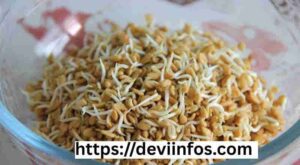A tiny herb with significant health advantages is fenugreek, sometimes referred to as methi in many Indian homes. For millennia, traditional medicine and cuisine have employed its seeds and leaves.
Fenugreek’s capacity to support health in a variety of ways, including blood sugar regulation, improved digestion, and even skin and hair health, sets it apart as a superfood.

A nutritional powerhouse, fenugreek is abundant in vitamins, minerals, fiber, and plant components. These are the top five incredible advantages of fenugreek that will make it a necessary part of your everyday diet.
1. Aids in Blood Sugar Regulation
The capacity of fenugreek to control blood sugar is one of its best-studied advantages, and it is particularly helpful for diabetics. The high soluble fiber content of fenugreek seeds aids in delaying the absorption and digestion of carbs.
This results in less blood sugar rises after meals and better insulin sensitivity. Regular fenugreek consumption has been linked to decreased fasting blood sugar and HbA1c levels, two important markers of long-term blood glucose control, according to studies.
How to use: soak a teaspoon of fenugreek seeds overnight, then eat them first thing in the morning when you’re not hungry. This easy routine can aid in the efficient management of diabetes.
2. Promotes Digestive Wellbeing
A natural digestive tonic is fenugreek. Its seeds, which are high in fiber, aid in avoiding constipation and encouraging intestinal regularity. The seeds also have a lubricating effect on the gut, which can lessen heartburn, improve the symptoms of acid reflux, and soothe the irritated stomach lining. Fenugreek has been used in traditional medicine to treat gastritis, bloating, and indigestion.
Advice: To ease stomach pain and enhance digestion, chew a few soaked seeds or drink fenugreek tea.
3. Encourages New Mothers to Breastfeed
Read also: Top 10 Tips for Successful Weight Loss
A common herbal therapy for nursing mothers looking to increase their milk production is fenugreek. Because of its phytoestrogen concentration, it functions as a natural galactagogue, which is a chemical that encourages lactation. According to a number of studies, women who take fenugreek report having more breast milk in a matter of days.
Note: Before using any herbal product, including fenugreek, to encourage breastfeeding, nursing moms should always speak with their healthcare physician.
4. Encourages Appetite Control and Weight Loss
You may find fenugreek to be a helpful ally on your weight loss path. Its seeds contain soluble fiber, which expands in the stomach to decrease hunger and produce a feeling of fullness.
This aids in naturally reducing caloric consumption. Furthermore, it is well known that the plant chemicals in fenugreek improve fat metabolism, which facilitates the body’s burning of stored fat. Recommendation: Drinking fenugreek water prior to meals can help reduce appetite and manage portion sizes.
5. Encourages the Health of Skin and Hair
For healthy skin and hair, fenugreek is a great source of iron, antioxidants, and vitamins B6 and C. Its antimicrobial and anti-inflammatory qualities help decrease dandruff, calm inflamed skin, and treat acne. Additionally, it makes drab hair shine, stimulates hair follicles, and encourages hair growth.
Home remedy: To enhance skin texture and support hair health, use a fenugreek paste (prepared by soaking and crushing seeds) to the face or scalp.
Conclusion
Despite its small size, fenugreek has several health benefits, earning it the moniker “superfood staple.” Fenugreek provides benefits for everyone, from promoting lactation, weight loss, and beauty to controlling blood sugar and assisting with digestion.
It is simple to include into daily life due to its flexibility in cooking and home cures. Fenugreek is a natural powerhouse that promotes wellness holistically, whether it is used as a supplement or added to teas or curries. Including it in your diet on a regular basis is an easy yet powerful way to improve your health.
